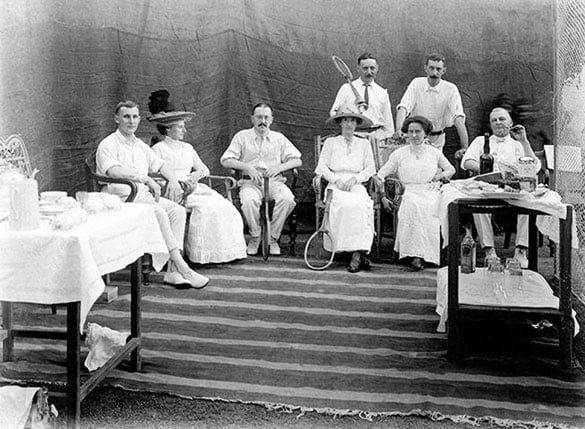As an Indian-American currently living in Indonesia, I was surprised to read Mr. Rooseboom’s recent article comparing the Colonial experiences of Indonesia and India and showing the British in a better light than the Dutch. Unfortunately, in my time here, I’ve often heard Indonesians lament that it would have been better had they not been colonized by the Dutch, even hearing this from the mouth of Indonesia’s former President B.J, Habibie at a recent conference. The reality, of course, is far more complex, and here I hope to provide a different angle than that of Mr. Rooseboom.
India and Indonesia were, by population, the two largest Colonial possessions in the world during the 18th and 19th century, and both were heavily desired by European powers. After failing in their quest to colonize and exploit the valuable resources of the East Indies, the British East India Company decided to try its luck further west, in India. While the Dutch may have used repressive tactics to subjugate the local populations — the invasion of Bali and the killing of the royal family is just one example — the British were far more sinister, using a policy of divide and conquer whose effects can still be felt today.
Both countries were heavily exploited for their resources — with nearly all the profits going to Europe. The British, however, took it a step further, turning vast regions of formally self-sufficient farmland in Bengal into vast opium plantation, setting monopsony starvation prices for poppies, turning it into valuable opium, and shipping the project to East Asia, and the profits to England. In China, Opium addicted millions and hastened the ruin of that countries’ once magnificent economy into a European client state. Is it really any wonder that even today China takes any Western advice with healthy scepticism? Or that the Indian farmer still struggles today to overcome the burdens of the past?
Mr. Rooseboom points to the infrastructure the British left, including railroads, and their sparse educational efforts which, it must be stated, never included women or lower caste people. What must be realized is that India, like Indonesia, had an indigenous education system that was devastated by Colonial policies. Upon independence, India had a similar literacy rate to that of Indonesia, perhaps with more token highly educated peoples. Today, Indonesia’s literacy rate is higher than India. And the trains? They were built to exploit resources first and exert British control second, not empower Indians who had no say in their construction or usage.
The Dutch inflicted similar harms economically, but nothing in Indonesia can compare to the British social policy of rational division. In an effort to manage people, the British drew borders drawn by religion. The 1905 partition of Bengal divided Bengali Hindus and Bengali Muslims, who speak the same language, wear the same dress, and are not so clearly divided (significant minorities lived in a mixed environment in peace). Later, Punjabi Muslims and Punjabi Sikhs were split between Pakistan and India, a partition that was forced upon the people and resulted in millions of deaths.
Can you imagine if the Dutch had done the same here? Created a separate state for Javanese Muslims and Javanese Christians? European ideas of race, religion, and ethnicity didn’t fit into pluralistic societies such as India and Indonesia. Neither did the nation-state system, but that’s another story.
Indonesia should be giving thanks that the Dutch didn’t divide society so thoroughly. India is recovering, but the border with Pakistan remains tense, and even today, Hindus are fleeing Bangladesh, whose Hindu minority population has shrunk from 25% after independence to only 10% today. I’m often amazed at how easily Indonesians of different religious and ethnic backgrounds mix. In India, this is too rare, except in interesting cases, such as my mum’s hometown of Hyderabad, which rarely sees ommunal violence. Hyderabad was also never under direct British control, so never went through the same types of divisive, destructive policies as much of the rest of south Asia.
The truth is there is no such thing as good Colonialism and bad Colonialism. Pre-colonial India and Indonesia had vast empires, incredible achievements in arts, literature, and culture. Malay sailors connected the archipelago through intricate networks of trade, while spices flowed from the Malabar coast of Southern India all around the world. The British and the Dutch stunted both countries growth and subjugated them to horrific, destabilizing exploitation. The wealth we see today in the ornate old buildings of Amsterdam and London is directly connected to the poverty still visible in Jakarta and New Delhi.
Comparing the British and Dutch in India and Indonesia are akin to trying to judge different shades of injustice. The truth is, there is just injustice when one people exert control over another and exploit them for gain, no matter how altruistic the rhetoric. In time, I believe both India and Indonesia will be able to recover from the damage wrought by Europe, but it will be a long, hard process, and we should always remember that it didn’t have to be this way.




